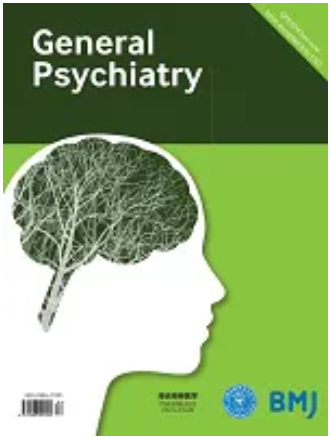Exploring the potential of the metaverse medical paradigm in drug addiction treatment: a preliminary discussion and future prospects
IF 5.3
3区 医学
Q1 PSYCHIATRY
引用次数: 0
Abstract
Drug addiction is a chronic and recurrent encephalopathy characterised by impulsive behaviour, spiritual cravings, psychological distortion and physical damage.1 According to the role of molecular biology mechanisms on the central nervous system, addictive substances can be classified as inhibitors (eg, opioids, etc), stimulants (eg, methamphetamine (MA), nicotine, cocaine, etc) and hallucinogens (eg, cannabis, etc).1 As published by the World Drug Report 2022, over 284 million individuals aged 15–64 worldwide have reportedly abused drugs in the past 12 months, emphasising the international challenge of effective detox treatment. The detoxification process consists of three phases: physiological recovery for the remission of withdrawal symptoms, psychological rehabilitation for the elimination of mental dependence, and social function restoration for the return to life, with the second phase being the most significant challenge. A sustained high level of drug craving often leads to unsuccessful psychological rehabilitation. Current methods of psychological intervention generally include compulsory detention management, cognitive behavioural therapy (CBT), repetitive transcranial magnetic stimulation (rTMS) and deep brain stimulation (DBS).2 However, often drug cravings are not effectively controlled.3 For example, the relapse rate of individuals addicted to opioid drugs like heroin could exceed 95% within 6 months post-detox treatment.4 Therefore, there is an urgent need to consider treatment effects during psychological rehabilitation. The integration of multiple schemes and novel interventions for drug treatment is emerging as a key research topic in this field. In recent years, digital health has rapidly advanced, with a focus on improving the efficiency and quality of healthcare services, including diagnosis, monitoring, treatment and data management, through digital information communication. Metaverse, also known as the three-dimensional internet, is a broader concept involving virtual multidimensional spaces that foster social interactions, user-generated content and a persistent environment across various domains, such as economy, ecology and the medical industry. Metaverse is a …探索元宇宙医学范式在戒毒治疗中的潜力:初步探讨与未来展望
吸毒成瘾是一种以冲动行为、精神渴求、心理扭曲和身体损害为特征的慢性和复发性脑病。根据分子生物学机制对中枢神经系统的作用,成瘾物质可分为抑制剂(如阿片类等)、兴奋剂(如甲基苯丙胺(MA)、尼古丁、可卡因等)和致幻剂(如大麻等)1。据《2022 年世界毒品报告》公布,在过去 12 个月中,全球有超过 2.84 亿 15-64 岁的人滥用过毒品,这凸显了有效戒毒治疗所面临的国际挑战。戒毒过程包括三个阶段:缓解戒断症状的生理康复、消除精神依赖的心理康复和恢复生活的社会功能康复,其中第二阶段是最大的挑战。对毒品的持续高度渴求往往会导致心理康复的失败。目前的心理干预方法一般包括强制拘留管理、认知行为疗法(CBT)、重复经颅磁刺激(rTMS)和脑深部刺激(DBS)等。2 然而,毒品渴求往往无法得到有效控制。3 例如,对海洛因等阿片类毒品上瘾者在戒毒治疗后 6 个月内的复吸率可能超过 95%。因此,迫切需要考虑心理康复过程中的治疗效果。整合多种方案和新型干预措施进行戒毒治疗正在成为该领域的一个重要研究课题。近年来,数字医疗迅速发展,其重点是通过数字信息通信提高医疗服务的效率和质量,包括诊断、监测、治疗和数据管理。元宇宙(Metaverse)又称三维互联网,是一个涉及虚拟多维空间的广义概念,它促进社会互动、用户生成内容和持久环境,横跨经济、生态和医疗行业等多个领域。Metaverse 是 ...
本文章由计算机程序翻译,如有差异,请以英文原文为准。
求助全文
约1分钟内获得全文
求助全文
来源期刊

General Psychiatry
医学-精神病学
CiteScore
21.90
自引率
2.50%
发文量
848
期刊介绍:
General Psychiatry (GPSYCH), an open-access journal established in 1959, has been a pioneer in disseminating leading psychiatry research. Addressing a global audience of psychiatrists and mental health professionals, the journal covers diverse topics and publishes original research, systematic reviews, meta-analyses, forums on topical issues, case reports, research methods in psychiatry, and a distinctive section on 'Biostatistics in Psychiatry'. The scope includes original articles on basic research, clinical research, community-based studies, and ecological studies, encompassing a broad spectrum of psychiatric interests.
 求助内容:
求助内容: 应助结果提醒方式:
应助结果提醒方式:


